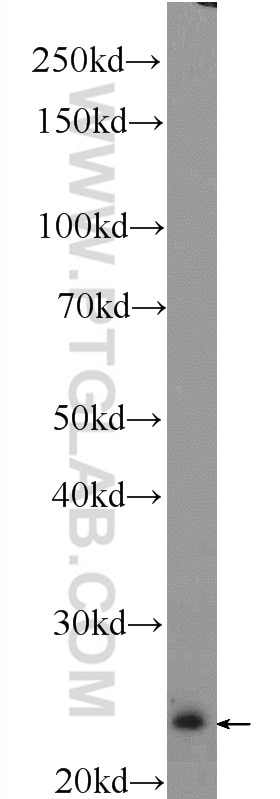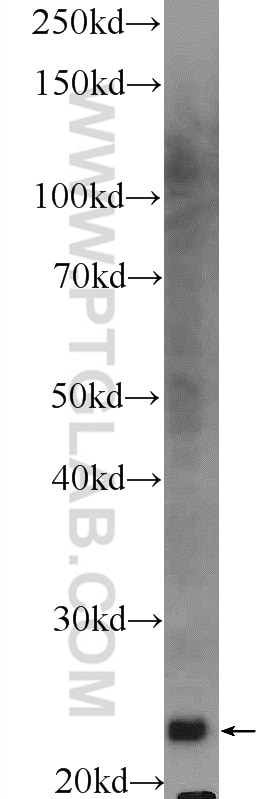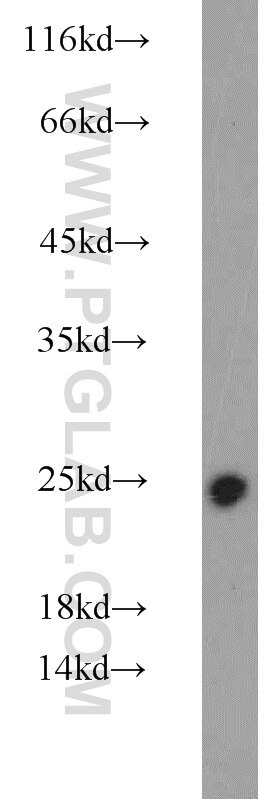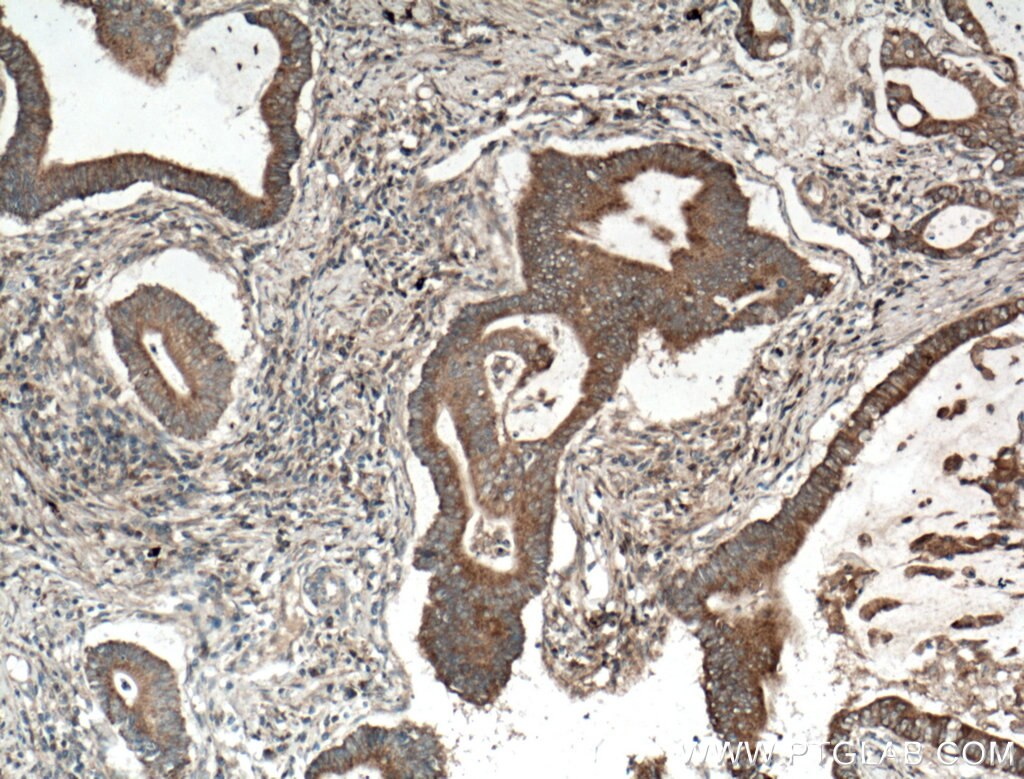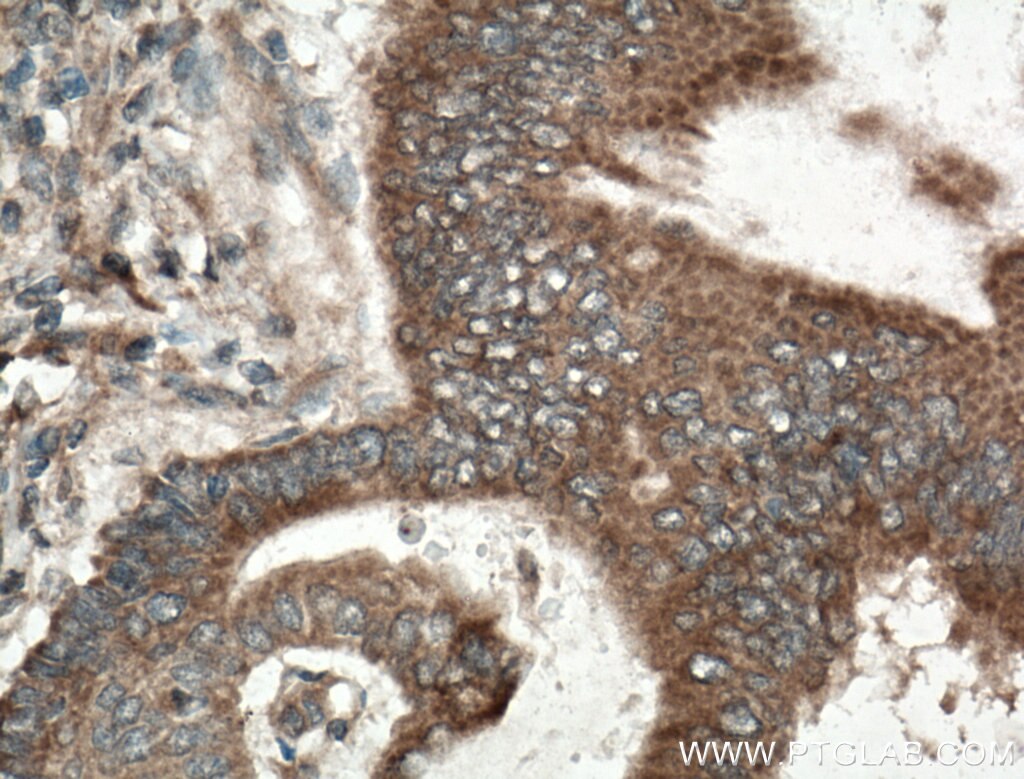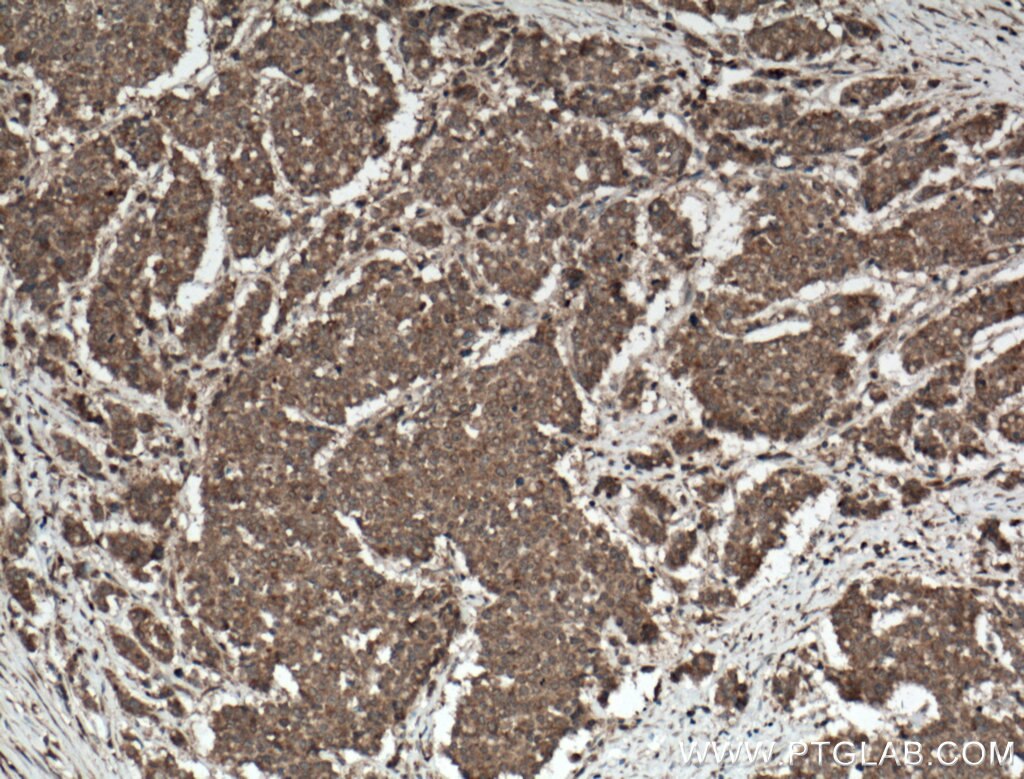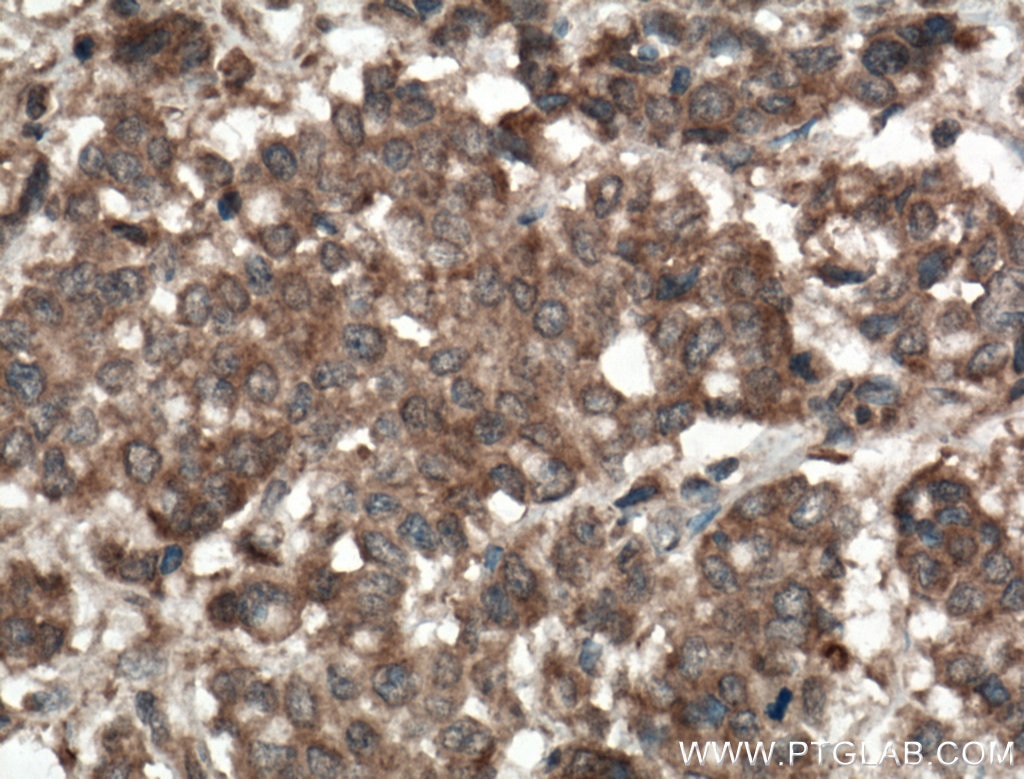RKIP Polyclonal antibody
RKIP Polyclonal Antibody for WB, IHC, ELISA
Host / Isotype
Rabbit / IgG
Reactivity
human, mouse, rat
Applications
WB, IHC, ELISA
Conjugate
Unconjugated
Cat no : 10575-1-AP
Synonyms
Validation Data Gallery
Tested Applications
| Positive WB detected in | mouse brain tissue, mouse liver tissue, mouse testis tissue |
| Positive IHC detected in | human stomach cancer tissue, human colon cancer tissue Note: suggested antigen retrieval with TE buffer pH 9.0; (*) Alternatively, antigen retrieval may be performed with citrate buffer pH 6.0 |
Recommended dilution
| Application | Dilution |
|---|---|
| Western Blot (WB) | WB : 1:500-1:1000 |
| Immunohistochemistry (IHC) | IHC : 1:50-1:500 |
| It is recommended that this reagent should be titrated in each testing system to obtain optimal results. | |
| Sample-dependent, Check data in validation data gallery. | |
Published Applications
| KD/KO | See 1 publications below |
| WB | See 1 publications below |
| IHC | See 3 publications below |
Product Information
10575-1-AP targets RKIP in WB, IHC, ELISA applications and shows reactivity with human, mouse, rat samples.
| Tested Reactivity | human, mouse, rat |
| Cited Reactivity | human, mouse |
| Host / Isotype | Rabbit / IgG |
| Class | Polyclonal |
| Type | Antibody |
| Immunogen | RKIP fusion protein Ag0864 |
| Full Name | phosphatidylethanolamine binding protein 1 |
| Calculated Molecular Weight | 21 kDa |
| Observed Molecular Weight | 23 kDa |
| GenBank Accession Number | BC008714 |
| Gene Symbol | PEBP1 |
| Gene ID (NCBI) | 5037 |
| RRID | AB_2299521 |
| Conjugate | Unconjugated |
| Form | Liquid |
| Purification Method | Antigen affinity purification |
| Storage Buffer | PBS with 0.02% sodium azide and 50% glycerol pH 7.3. |
| Storage Conditions | Store at -20°C. Stable for one year after shipment. Aliquoting is unnecessary for -20oC storage. 20ul sizes contain 0.1% BSA. |
Background Information
Raf kinase inhibitor protein (RKIP), also termed phosphatidylethanolamine binding protein PEBP1, was initially identified as a potent inhibitor of Raf-1/MEK/ERK, NF-kB, and G-protein-coupled receptor signaling pathways. Later RKIP has been further identified as a metastasis suppressor and its loss of expression has been reported in various cancers. Its expression has been proposed as a prognostic marker for patients diagnosed with the above cancers.
Protocols
| Product Specific Protocols | |
|---|---|
| WB protocol for RKIP antibody 10575-1-AP | Download protocol |
| IHC protocol for RKIP antibody 10575-1-AP | Download protocol |
| Standard Protocols | |
|---|---|
| Click here to view our Standard Protocols |
Publications
| Species | Application | Title |
|---|---|---|
FASEB J Menstrual fluid factors facilitate tissue repair: identification and functional action in endometrial and skin repair. | ||
Anticancer Res Differential Protein Expression of Lymph Node Metastases of Papillary Thyroid Carcinoma Harboring the BRAF Mutation. | ||
J Ethnopharmacol AR/RKIP pathway mediates the inhibitory effects of icariin on renal fibrosis and endothelial-to-mesenchymal transition in type 2 diabetic nephropathy
| ||
Medicine (Baltimore) Prognostic significance of RKIP, TGM2, and CMTM4 expression in oral squamous cell carcinoma |
